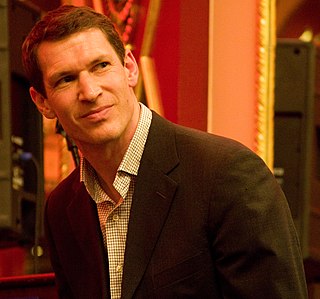A Quote by Chris Sullivan
There is a lot of things to be outraged about these days, and I think that getting outraged about an actor on a television show who may be wearing a costume that makes him larger than he is, might be low on the list.
Related Quotes
I design for the movie and the character as well as the person wearing the costume. I show the ideas to the actor, then do fittings for shape and technical things such as movement in the costume. Once the costume in this form is on the actor, you have a sense of their connection with it. I then take it to the next level with the final fit.
It seems that people are more comfortable with the private outrage about gay marriage, because when you are outraged about this issue, it requires no work. There's no work that you have to do when you're outraged about a gay couple. There is work that you have to do if you want to see black fathers raise their children. There is work that you have to do if you want to see a school develop.
Costume is always an asset. Normal costume you have a lot to say about - if you're wearing suits or ties, and what color you want, and how it's going to be cut, and stuff like that, and whether or not you're going to wear a hat, and blah, blah, blah. But, when you're wearing a special costume, and of course, costume is probably the second ingredient in character, script being first, I always find that the costume does a lot to cement your character, to put it firmly in mind.
When I pick a story, I'm very much aware of the larger issues that it's illuminating. But one of the things that I, as a writer, feel strongly about is that nobody is representative. That's just narrative nonsense. People may be part of a larger story or structure or institution, but they're still people. Making them representative loses sight of that. Which is why a lot of writing about low-income people makes them into saints, perfect in their suffering.


































